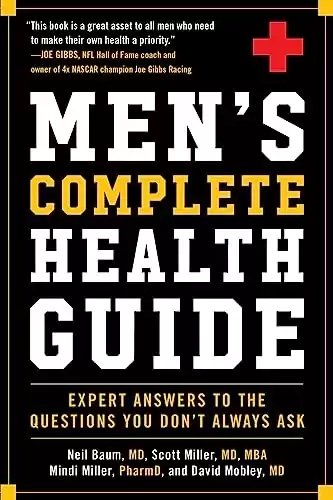Men’s health encompasses a range of concerns that are vital to understand, as early awareness and proactive measures can significantly impact long-term well-being. Heart disease remains the leading health issue among men, often linked to high blood pressure, cholesterol, and lifestyle factors; prevention strategies include regular exercise, a heart-healthy diet, and regular check-ups to monitor cardiovascular health. Prostate health is another major concern, with men over 50 advised to have regular screenings; a diet rich in vegetables and regular exercise can help maintain prostate health. Mental health is equally important, as conditions like depression and anxiety can be prevalent but often go untreated; therapy, support groups, and mindfulness practices can offer effective relief.
Diabetes is also a growing concern, especially for men with sedentary lifestyles or unhealthy eating habits; weight management, balanced nutrition, and regular physical activity are key for prevention. Lastly, lung health remains crucial, particularly for men with a history of smoking or exposure to pollutants—quitting smoking, avoiding secondhand smoke, and getting regular check-ups can greatly reduce risks. By prioritizing these five health concerns and adopting preventive habits, men can lead healthier, more resilient lives.
1. Heart Disease
Concern:
Heart disease is the leading cause of death among men worldwide. Risk factors include high blood pressure, high cholesterol, smoking, obesity, and a sedentary lifestyle.
Treatment and Prevention:
- Diet and Nutrition: Adopt a heart-healthy diet rich in fruits, vegetables, whole grains, lean proteins, and healthy fats. Reduce salt, sugar, and saturated fat intake.
- Exercise: Engage in at least 150 minutes of moderate aerobic activity or 75 minutes of vigorous activity per week, along with muscle-strengthening exercises twice a week.
- Regular Check-Ups: Monitor blood pressure, cholesterol levels, and body weight. Regular screenings can detect issues early, allowing for timely intervention.
- Lifestyle Changes: Quit smoking, limit alcohol consumption, and manage stress through techniques such as mindfulness, yoga, or therapy.
2. Prostate Cancer
Concern:
Prostate cancer is a significant concern for men, particularly those over 50. It is one of the most common types of cancer among men.
Treatment and Prevention:
- Screening: Regular prostate-specific antigen (PSA) tests and digital rectal exams (DRE) can help detect prostate cancer early. Discuss screening options with your doctor.
- Healthy Diet: Diets rich in fruits, vegetables, and omega-3 fatty acids may lower the risk of prostate cancer. Avoid excessive red meat and high-fat dairy products.
- Physical Activity: Regular exercise helps maintain a healthy weight, which is crucial in reducing cancer risk.
- Medical Consultation: If you have a family history of prostate cancer, consult with your doctor about additional preventive measures and possible genetic testing.
3. Depression and Mental Health
Concern:
Depression and other mental health issues are often overlooked in men due to stigma and reluctance to seek help. Mental health is just as important as physical health.
Treatment and Prevention:
- Seek Professional Help: Therapy and counseling can provide support and strategies for managing depression. Medications may also be prescribed if necessary.
- Stay Connected: Maintain strong relationships with friends and family. Social support is essential for mental health.
- Healthy Lifestyle: Regular exercise, a balanced diet, adequate sleep, and stress management techniques can improve mental well-being.
- Open Communication: Encourage open discussions about mental health with loved ones and healthcare providers. Breaking the stigma is crucial for seeking help.
4. Diabetes
Concern:
Type 2 diabetes is increasingly common among men, often linked to obesity and inactivity. It can lead to severe complications if not managed properly.
Treatment and Prevention:
- Healthy Eating: Focus on a diet low in refined sugars and high in fiber. Choose whole grains, lean proteins, and plenty of fruits and vegetables.
- Regular Exercise: Physical activity helps regulate blood sugar levels and maintain a healthy weight.
- Monitor Health: Regular blood sugar testing and medical check-ups are crucial for early detection and management of diabetes.
- Weight Management: Maintaining a healthy weight significantly reduces the risk of developing type 2 diabetes.
5. Erectile Dysfunction (ED)
Concern:
Erectile dysfunction can affect men’s confidence and relationships. It is often linked to underlying health issues such as heart disease, diabetes, and stress.
Treatment and Prevention:
- Medical Consultation: Consult a healthcare provider to identify and treat any underlying health conditions contributing to ED.
- Healthy Lifestyle: Regular exercise, a balanced diet, and maintaining a healthy weight can improve erectile function.
- Mental Health Support: Addressing stress, anxiety, and depression can alleviate ED symptoms. Consider therapy or counseling if needed.
- Medication: Various medications are available to treat ED. A healthcare provider can recommend the best option based on individual needs and health status.
Conclusion
Men’s health concerns are diverse and require a proactive approach to treatment and prevention. By adopting healthy lifestyle habits, seeking regular medical care, and addressing both physical and mental health needs, men can significantly improve their overall well-being and quality of life. Prioritizing health is not just about living longer but also about living better.
- Buy On Amazon
$17.99$15.71We earn a commission if you make a purchase, at no additional cost to you.
11/06/2024 01:14 pm GMT - Buy On Amazon
$95.00$11.33We earn a commission if you make a purchase, at no additional cost to you.
11/06/2024 01:31 pm GMT - Buy On Amazon$28.94
We earn a commission if you make a purchase, at no additional cost to you.
11/06/2024 01:06 pm GMT - Buy On Amazon
$19.95$14.24We earn a commission if you make a purchase, at no additional cost to you.
11/06/2024 01:06 pm GMT
FREQUENTLY ASKED QUESTIONS
The most common health concerns for men include heart disease, prostate cancer, depression and mental health issues, diabetes, and erectile dysfunction.
Men can prevent heart disease by maintaining a healthy diet, exercising regularly, avoiding smoking, limiting alcohol intake, and managing stress. Regular health check-ups to monitor blood pressure, cholesterol levels, and weight are also crucial.
Symptoms of prostate cancer can include difficulty urinating, frequent urination (especially at night), blood in urine or semen, erectile dysfunction, and discomfort in the pelvic area. However, early-stage prostate cancer often has no symptoms, making regular screenings important.
Men should discuss prostate cancer screening with their healthcare provider. Generally, men at average risk should start screenings at age 50, while those at higher risk, such as African American men or those with a family history of prostate cancer, should consider starting at age 45 or earlier.
Effective treatments for depression include therapy (such as cognitive-behavioral therapy or counseling), medications (antidepressants), lifestyle changes (exercise, healthy diet, adequate sleep), and building strong social support networks. Men should seek professional help if experiencing symptoms of depression.
Men can manage and prevent diabetes by maintaining a healthy weight, eating a balanced diet low in refined sugars and high in fiber, exercising regularly, monitoring blood sugar levels, and having regular medical check-ups.
Erectile dysfunction can be caused by physical conditions such as heart disease, diabetes, high blood pressure, high cholesterol, obesity, and hormonal imbalances. Psychological factors like stress, anxiety, and depression can also contribute to ED.
Erectile dysfunction can be treated with lifestyle changes (healthy diet, regular exercise), medications (such as PDE5 inhibitors like Viagra), therapy for psychological causes, and addressing any underlying medical conditions. Men should consult a healthcare provider for personalized treatment options.
Lifestyle changes that can improve men’s mental health include regular physical activity, a balanced diet, adequate sleep, stress management techniques (like mindfulness and meditation), reducing alcohol consumption, and avoiding drugs. Building strong relationships and seeking support from friends and family are also beneficial.
Maintaining a healthy diet impacts men’s overall health by reducing the risk of chronic diseases such as heart disease, diabetes, and certain cancers. A balanced diet supports mental health, maintains a healthy weight, and boosts energy levels, contributing to overall well-being.
Regular exercise is important for men’s health as it helps control weight, reduces the risk of chronic diseases (like heart disease and diabetes), improves mental health, strengthens muscles and bones, enhances sleep quality, and boosts overall energy levels.
Men can effectively manage stress through regular physical activity, relaxation techniques (such as deep breathing, meditation, and yoga), maintaining a healthy work-life balance, spending time with loved ones, and seeking professional help when needed.










